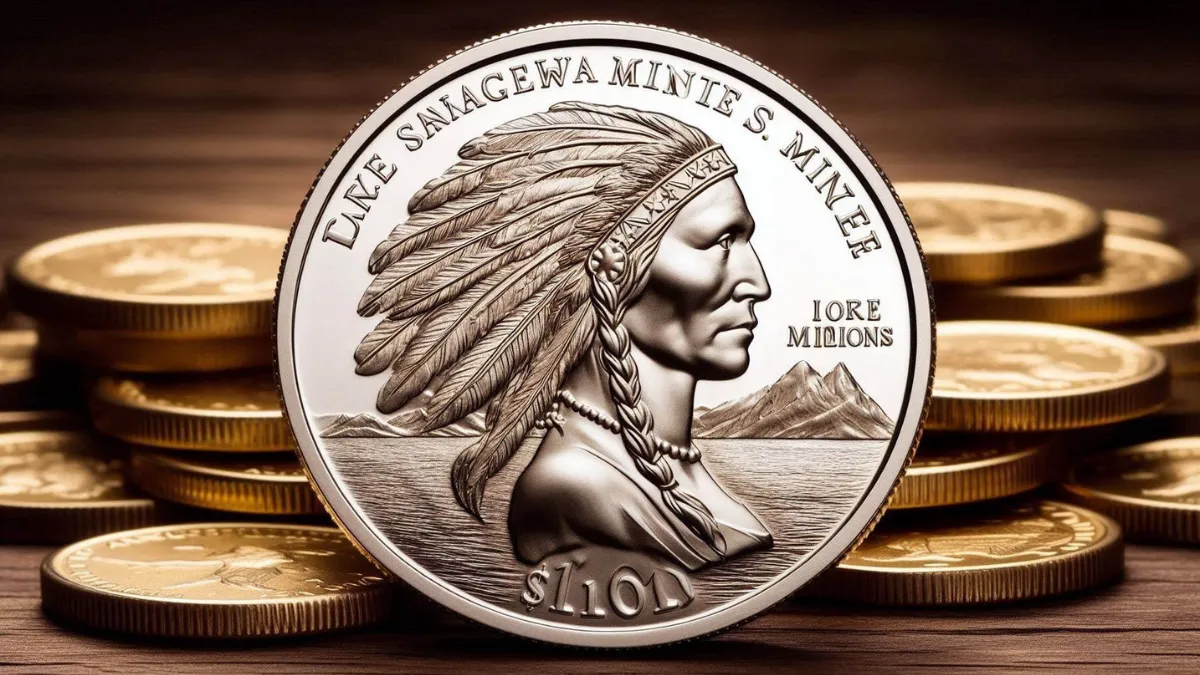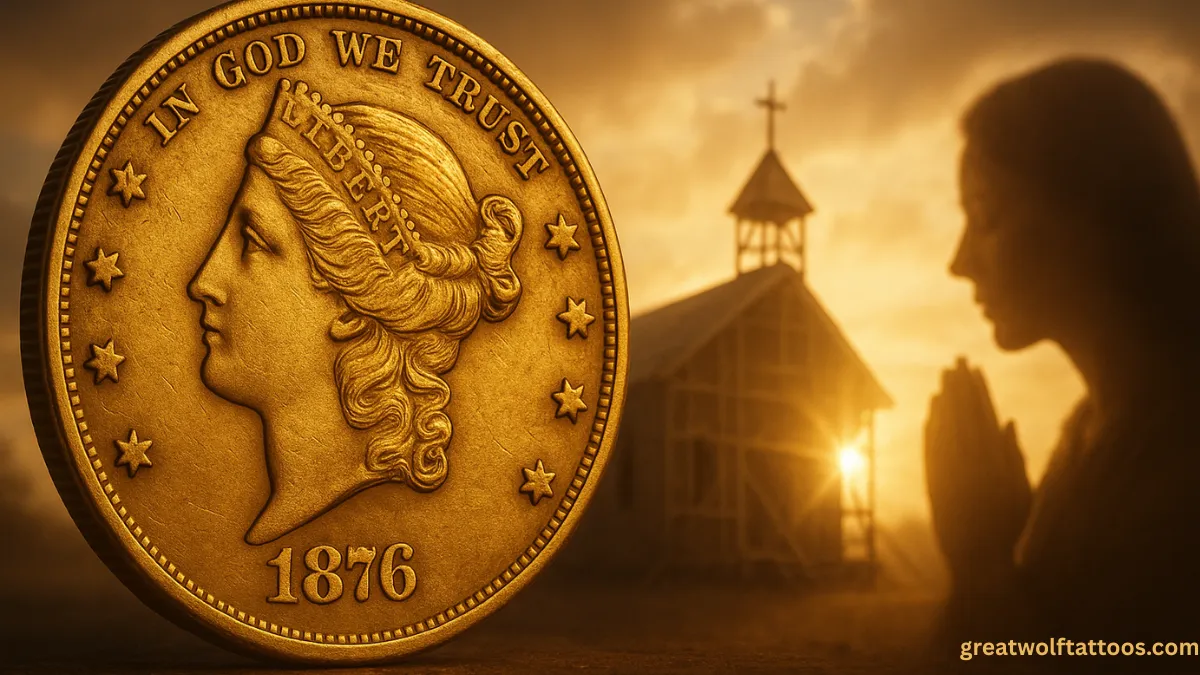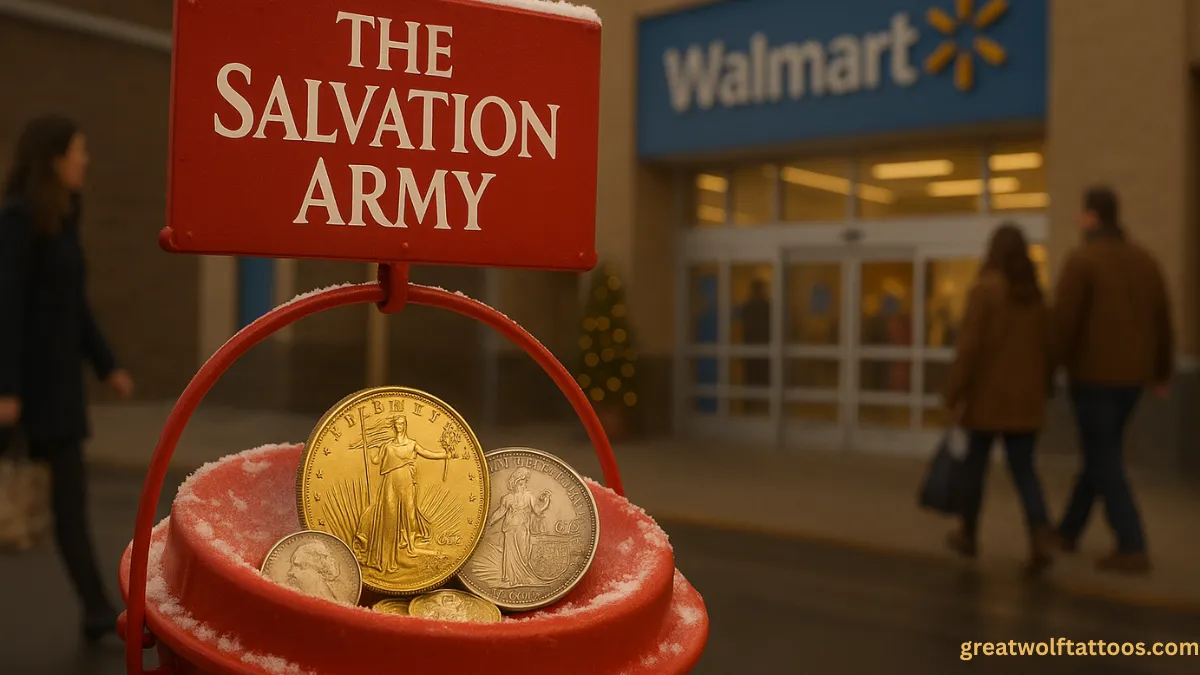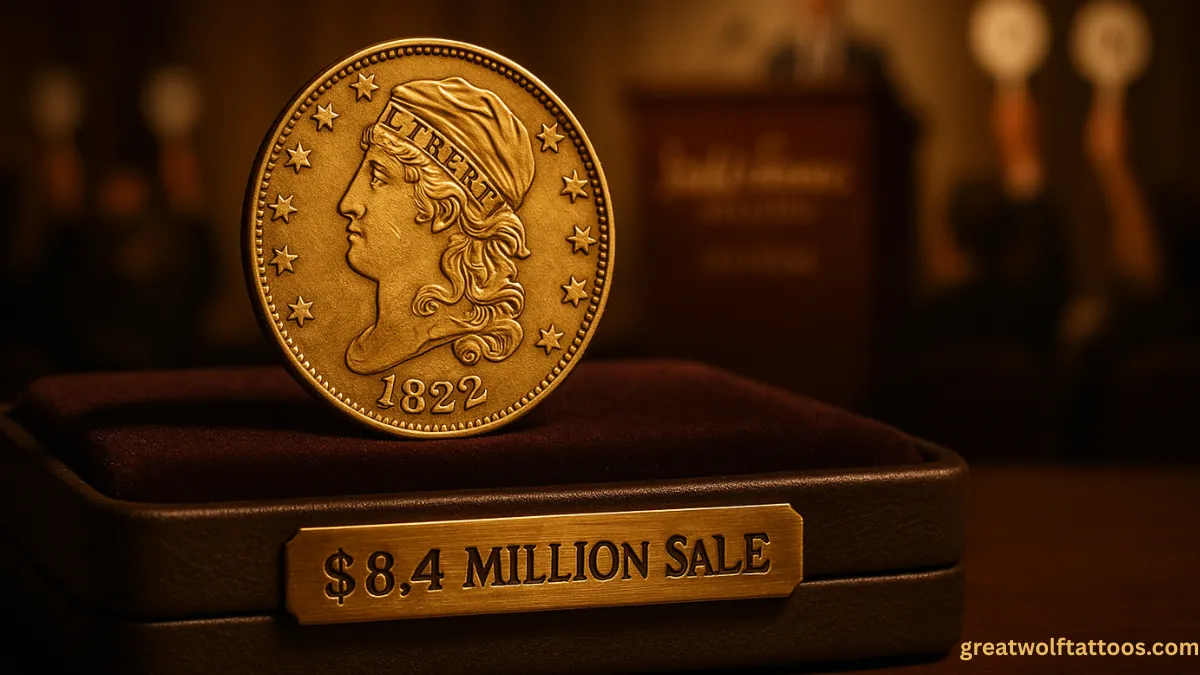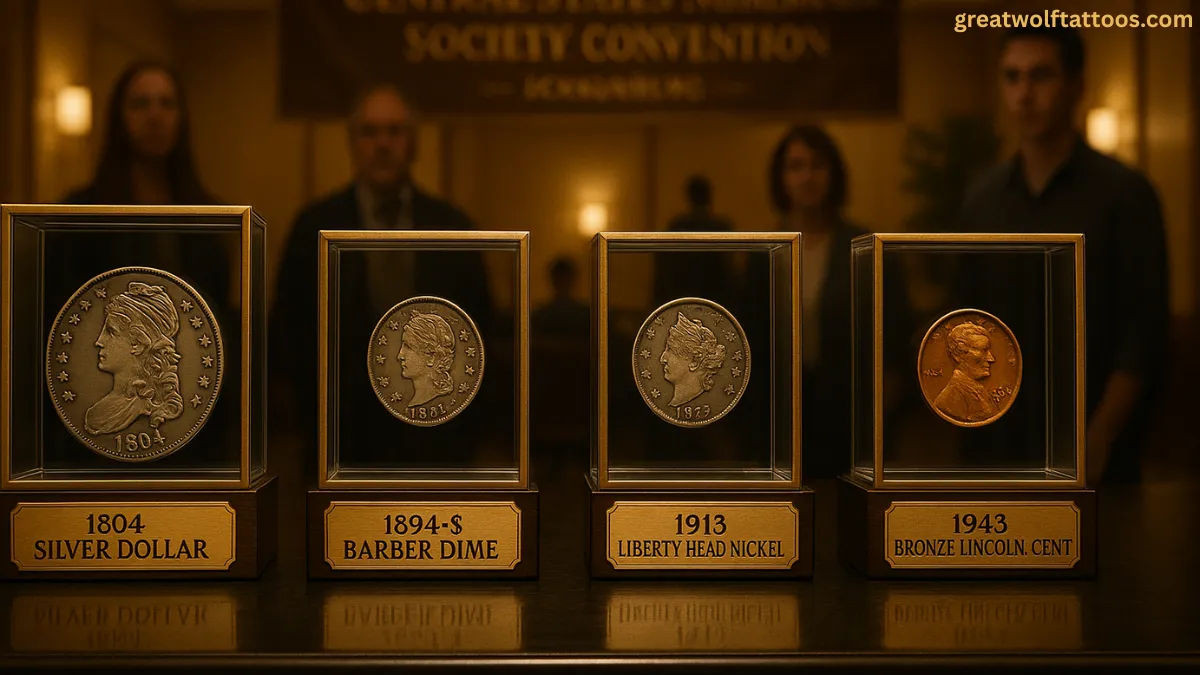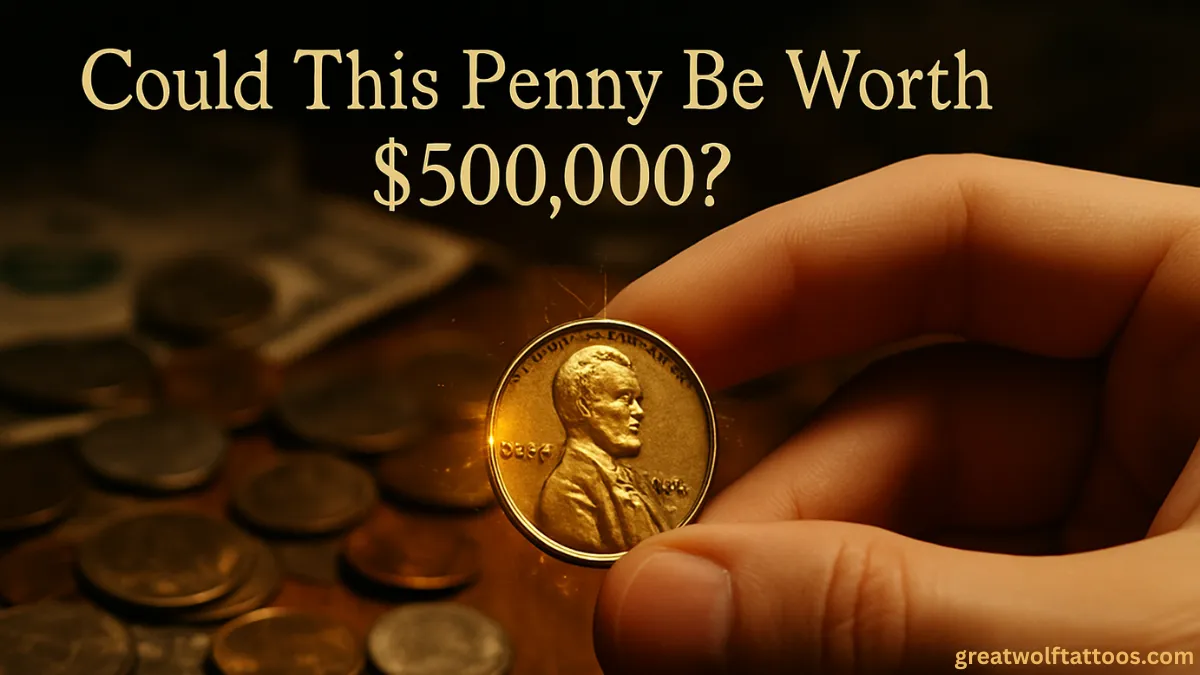In the world of coin collecting, a simple mistake during minting can turn a regular coin into a multimillion-dollar marvel. This is exactly what happened with a rare Sacagawea dollar coin that, due to a unique error, ended up being worth as much as $2.1 million. First introduced in 2000 to replace the Susan B. Anthony dollar, the Sacagawea coin gained fame for its golden appearance and historical portrait. But an extremely rare version — created due to a minting mistake — has become one of the most expensive modern coins ever recorded in the U.S.
So what makes this dollar coin worth more than $2 million? Let’s explore the fascinating tale behind the mistake, what caused this dramatic increase in value, and how you might recognize if a similar hidden gem is sitting in your coin jar at home or tucked away in your old collection.
What Is the Rare Sacagawea Dollar Worth $2.1 Million?
The specific coin is a 2000 Sacagawea dollar accidentally struck on a 1999 Washington quarter blank — an extremely rare mistake that fused elements of two distinct coins into one shocking error.
What Makes It Unique:
- Wrong Planchet Error: Sacagawea obverse stamped on a quarter blank
- Wrong Metal Composition: Standard Sacagawea coins are golden; this one is silver in tone
- Wrong Size and Weight: Thinner and lighter than a typical dollar coin
- Clear Design Mismatch: Design distortions due to wrong-size metal
Only a small number of authenticated specimens are known, placing this error coin among the rarest modern U.S. coins ever produced.
The History Behind the Error – How It Happened
Between 1999 and 2000, the U.S. Mint was shifting from Susan B. Anthony coins to the Sacagawea dollar. During this transitional period, some leftover quarter blanks accidentally stayed inside the minting machinery. When dies for the Sacagawea dollar were added, they struck these leftover quarter planchets, resulting in an unintentional combination that wasn’t meant to exist.
While high-speed coin production occasionally leads to minor mistakes, it’s extremely rare for one to be identified, verified, and kept in pristine condition. That rarity is exactly what gives this coin its staggering value and legendary collector status.
Features of the $2.1 Million Sacagawea Dollar Error
To properly identify this coin, collectors need to examine several key traits that set it apart from both standard Sacagawea dollars and Washington quarters.
Identification Checklist:
| Feature | Description |
|---|---|
| Obverse Design | Sacagawea carrying her infant son |
| Reverse Design | Flying eagle surrounded by 17 stars |
| Metal Composition | Silver hue (not gold-toned) |
| Weight | About 5.67 grams, matches a quarter |
| Diameter | 24.26 mm (smaller than a $1 coin) |
| Edge | Reeded edge, similar to a quarter’s edge |
| Strike Quality | Incomplete designs from size mismatch |
| If your coin is silver in color but carries the Sacagawea design and resembles a quarter’s size, you may be holding something priceless. |
How Much Is the Error Sacagawea Dollar Worth?
One such error coin was auctioned in 2012 for $155,250, and its value has only climbed. As of 2025, coins with verified crossover planchet errors — especially this specific type — are selling at jaw-dropping figures in elite collecting circles.
Estimated Value of This Coin in 2025:
| Condition | Estimated Market Value |
|---|---|
| Circulated | $250,000 – $750,000 |
| Mint State (MS-65+) | $1.2 million – $2.1 million |
| Proof (error type) | Possibly more, if it exists |
Other Rare Sacagawea Errors to Watch For
While the quarter planchet mix-up is the most legendary, there are other Sacagawea dollar errors that are both collectible and surprisingly valuable in today’s numismatic market.
Additional Error Types and Values
| Error Type | Description | Approx. Value |
|---|---|---|
| Wounded Eagle | Die gouge across the eagle’s chest | $200 – $1,500 |
| Double Strike | Coin struck more than once | $500 – $5,000 |
| Wrong Planchet (foreign coins) | Coin struck on foreign metal blanks | $1,000 – $15,000 |
| Off-Center Strike | Part of design is missing | $300 – $2,000 |
| Missing Edge Lettering | Edge inscriptions left out | $150 – $1,000 |
| Even recently minted coins can hold significant value if such errors occur during production. |
How to Know If You Have a Rare Sacagawea Dollar
Inspect your Sacagawea dollars carefully. Coins with these characteristics might be rare:
- Appears silver rather than the usual gold color
- Weighs less or feels thinner than normal
- Designs are off-center, incomplete, or odd
- Details seem stretched or distorted
Use a coin scale and calipers for accuracy. If the coin looks like a Sacagawea but matches quarter dimensions, don’t spend it — get expert verification immediately.
What to Do If You Find a Suspected Error Coin
Step-by-Step Guide
- Do not clean the coin — even a light rub can devalue it
- Place it in a plastic flip or coin holder for protection
- Handle with gloves to avoid skin oil damage
- Photograph both sides in high quality
- Submit it to PCGS or NGC for grading and verification
- Once authenticated, get a certified appraisal before any sale or auction
Summary – The Coin That Shouldn’t Exist
| Feature | Collector Significance |
|---|---|
| Struck on Quarter Planchet | Rare minting anomaly |
| 2000 Sacagawea Dollar Design | Marked a major U.S. coinage transition |
| Silver Color vs. Gold | Instantly noticeable difference |
| $2.1 Million Valuation | Among top-tier modern coin values |
| Scarcity | Fewer than 5 publicly verified examples |
| This rare Sacagawea error coin proves that even modern-day change can hold fortunes. Keep an eye on your coins — history and wealth may lie in your pocket. |
How a Sacagawea Mule Error Turned a $1 Coin Into a $2.1 Million Rarity
A 2000 minting mix-up changed an ordinary dollar into a numismatic legend. This mule error, involving both Sacagawea and Washington designs, is one of the rarest crossover mistakes ever found.
| FIELD | DETAILS |
|---|---|
| Coin Type | Sacagawea Dollar – Washington Quarter Mule Error |
| Occurrence Year | 2000 |
| Error Description | Sacagawea reverse paired with quarter obverse (“mule” error) |
| How Many Known | Around 18–19 certified by PCGS/NGC |
| Grading Quality | Best examples graded MS-66 or higher |
| Auction Records | $88,125 in 2013; high-grade examples now valued at $2.1M+ |
| Why It’s So Valuable | Ultra-low mintage, MS condition, and error type rarity |
| Authentication Required | Yes – Only PCGS/NGC can confirm authenticity |
| How to Spot One | Washington obverse + Sacagawea reverse = mule configuration |
| Recommended Sale Platforms | Heritage, GreatCollections, Stack’s Bowers |
| Vigilance Advice | Always check old rolls and change for hidden treasures |
FAQ
Q1: How many 2000 Sacagawea coins were struck on quarter planchets?
Fewer than five are confirmed, making this one of the rarest U.S. coin errors in existence.
Q2: How can I tell if my Sacagawea dollar is valuable?
Check for silver tone, incorrect weight, size, or off-center strikes — all signs of a planchet error.
Q3: Is it legal to own and sell mint error coins?
Yes, error coins are legal collectibles and regularly sold at public auctions.
Q4: Should I clean my error coin?
Never clean coins. Even mild cleaning lowers collector value dramatically.
James is a passionate astrologer and insightful writer with years of experience interpreting the stars. Known for his clear, engaging style, he specializes in zodiac compatibility, birth chart analysis, and planetary transits. Through his articles and consultations, James helps readers connect cosmic patterns with everyday life, offering guidance rooted in both traditional astrology and modern interpretation. Whether you're a curious beginner or a seasoned astrology enthusiast, James’s work illuminates the path to greater self-awareness and spiritual growth.
